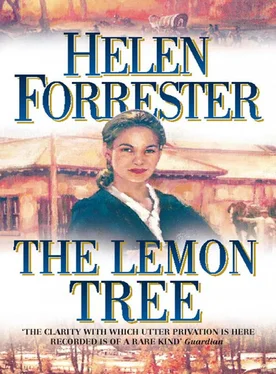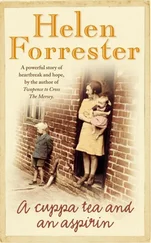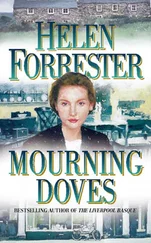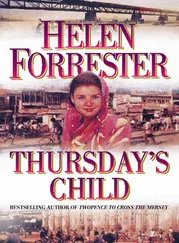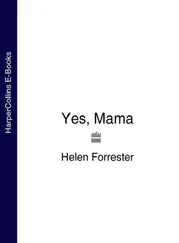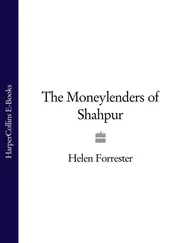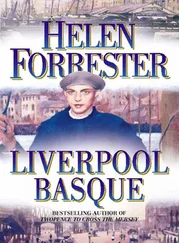It was probably the most sensible remark he had made to her that day, but she had snapped him up promptly. ‘The solids can be used for winter food for steers. Don’t your farmers know that?’
Mr Turner had gulped and failed to reply immediately; he knew little about farming. What did women know about cattle?
When he had recovered himself, he pointed out that a new venture like that would need capital. ‘Presses,’ he added vaguely, ‘and – er – men who understand farming, to sell the residue.’
‘Right.’ She had stopped to take a small black notebook and pencil out of her reticule, and made a quick note. She might, she thought, cost it out in years to come, when she understood more about the business.
Playing at her father’s feet in his large silk warehouse in Beirut or cuddled by her mother’s side when the family was gathered together in the evening, she had absorbed a great deal of the discussions going on over her head. Amongst much else, she understood the importance of estimating cost and return – and the ever-present risks of undertaking something new. During her long tour of the soap works, she had felt, at times, as if her father were whispering to her, telling her what to look for, giving her quiet advice.
And then there was the glycerine, which, the chemist had informed her, was left over after the soap was made. He had mentioned that, when properly refined, it was a good base for salves for the skin and for certain medicines; he and Benjamin Al-Khoury were working on a scented lotion for chapped hands, to market alongside the lavender perfume and toilet soaps. At present, he had informed her, the glycerine was sold to explosives manufacturers.
Explosives were used for war, she ruminated, as she enclosed her letter to Joe in an envelope and licked the flap; and she had had enough threat of that round her farm near Fort Edmonton, when the Metis had risen in defence of their land rights. It was only last year that their leader, Louis Riel, had been hanged for rebellion.
Her mind wandered to the problems of her life as a settler. The rebellion had been very frightening; and yet, she considered uneasily, Louis Riel had had a rightful cause. His people were descendants of early European settlers and their Indian wives, and they had been dispossessed of their land further east by the rush of new immigrants from Europe. In despair, they had moved westward to squat on the undeveloped lands of the Hudson’s Bay Company. Unlike her stepfather, who had himself been a squatter on the Company’s holdings, many of them had not succeeded in establishing their right to remain on the land. She thought smugly that it was thanks to her stepfather’s and her own sagacity that she now owned the land she farmed.
A squatter’s legal rights were tenuous, she knew; she herself had once not hesitated to try to overset a Metis squatter’s right to a riverside homestead which she had coveted.
‘But at least I finished up by paying him for it,’ she had said defensively to one of the Oblate Fathers from St Albert, when he had dared to criticize her ruthless business methods. ‘It cost me all I had at the time,’ she had added, hatred in every inch of her. ‘I could have hounded him off – like the Hudson’s Bay tried to do to my stepfather.’
Her eyes, long, oriental, heavily fringed with thick black lashes, were half-closed and averted from him, as she had continued, ‘When I first came to Fort Edmonton, a young innocent girl, that man shouted obscenities after me, because I’m sallow-skinned and he thought I was a Chinese – a man’s plaything. And I would prefer not to repeat what he used to call my stockman, Joe Black. Why should I care about him, Father?’ She had given a dry little laugh, and had turned and left the discomfited priest standing in the middle of the spring mud of the Fort’s yard.
The priest had sighed. He had been warned by an older priest that this wilful, proud, strayed member of the Christian flock, a lone Maronite Christian survivor of the 1860 massacres in Lebanon, had endured a lot of sorrow. She was now in her late thirties, and, in her business affairs, she had the reputation of being as merciless as an Iroquois woman – and when he considered what Iroquois women had done to captured Jesuit priests in earlier times, a faint shudder went through his thin, bent frame, as if the devil had touched him on the shoulder.
Yet, as he trudged along the trail to his Mission in St Albert, he had to admit that during the Metis uprisings she had been one of the few to remain calm. She had prepared to defend her homestead with more common sense than other settlers, many of whom had panicked – even he and his fellow priests, who ministered to the Metis, had been very frightened.
‘Nobody has to worry about Wallace Harding or Joe Black,’ one of his parishioners in St Albert had assured him. ‘They’re the best shots in the district and she’s got that cabin well defended; the rebels’ll go for easier loot.’
Then, of course, there was Joe Black himself, the priest reflected; Joseph Black, the only negro in the district. Joe had a history, too.
According to Father Lacombe, who knew almost everything about everybody, he was the son of a Cree woman and a freed slave who had accompanied John Rowand on his exploration of the Bow River, further south.
He had been brought up in his maternal grandfather’s lodge and had then gone to work on one of the early ranches. In consequence, he had a wonderful way with horses – with any animals, if it came to that. Later, he had trapped for a time, following the animals northward, and had finally met up with Tom Harding, an American miner. The young priest had never met Tom Harding, but the story was well known; Tom had been a squatter on undeveloped Hudson’s Bay Company land a few miles east of Fort Edmonton.
Disregarding the splutters of rage from the Hudson’s Bay Factor at the Fort, who was rapidly becoming less and less able to enforce his company’s rights to the immense territory they were supposed to control, Tom Harding and Joe Black had, with sporadic aid from Joe’s Cree relatives and a couple of temporarily stranded miners, slowly opened up several square miles, much of it forest. Based on what he had observed in the United States, Tom Harding sowed grass and clover, as well as barley, oats and potatoes. It was backbreaking work and, in addition, they had had the difficult task of protecting their first few animals and hens, not only from predators but also from increasingly hungry parties of Indians.
Despite Joe’s abilities as a hunter and trapper, game was scarce and in the early years they were often hungry themselves. Each year, when the ferocious winter descended on them, they would ask themselves why they bothered and would become irritable with each other. But the first sound of water dripping from the snow-covered roof would raise their spirits, and they would begin to plan the coming year. The Hudson’s Bay Factor, aware of whispers from eastern Canada and from London about the Hudson’s Bay mandate being withdrawn, gave up on them and was thankful, occasionally, to buy or trade for some of their crops, to feed the increasing number of people living in and around the Fort.
The trust between the two men became absolute.
As the early winter cold bit into the priest’s own underfed body during his long walk back to the Mission, he secretly envied Joe Black’s physical strength. Over six feet tall, Joe was, and built to it, with wiry grey hair, teeth discoloured by tobacco, and big black eyes surrounded by innumerable wrinkles; those eyes, thought the priest, could be cold and watchful, like those of a cougar he had once seen; at other times they could dance with amusement, and his deep rumbling laugh would roll across the room. An old clerk at the Fort had told him that Joe had been a fine, handsome man until he had caught the smallpox. The dreadful disease had left its marks on his cheeks and forehead, the priest reflected with compassion, and probably on his character as well.
Читать дальше
